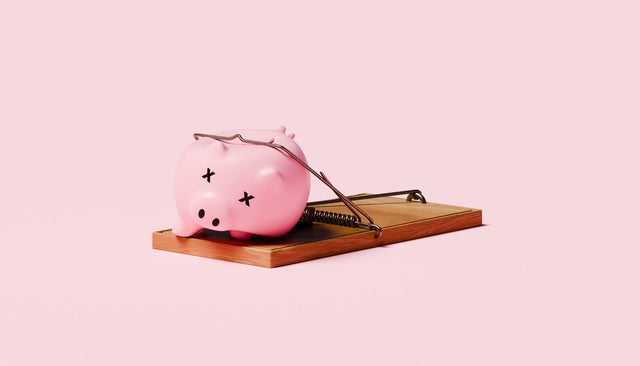What happens if you get your debt written off? Here's what borrowers should know now.
If your credit card or personal loan debt has spiraled out of control, which is the case for a lot of borrowers in today's economic climate, hearing that a creditor "wrote off" your balance might sound like a relief. After all, if the lender you owe money to has officially decided it's uncollectible, doesn't that mean you're off the hook for the balance?
Well, not exactly.
A debt write-off doesn't mean forgiveness. It's more like a shift in who's handling your debt and how it appears on your credit report. Lenders typically write off unpaid debt when they've exhausted their collection efforts and no longer expect you to repay it. But that doesn't mean the balance disappears. In fact, it could mark the start of a new phase of financial stress, one involving some serious (and ongoing) consequences.
But as more Americans struggle under the weight of record-high credit card balances, which are now topping $1.23 trillion, write-offs have become common. So, instead of assuming that write-off is a "get-out-of-debt-free" card, you need to understand what really happens next, and what you can do to take back control.
Chat with a debt relief expert about the strategies available to you today.
What happens if you get your debt written off?
When a creditor writes off your debt, it's typically after 180 days of missed payments. At that point, the lender reports the account as a charge-off to credit bureaus, marking it as a loss on their books. From the lender's perspective, they're moving on, but you're not necessarily in the clear as a result. Here's what usually follows:
- The debt may be sold to a collection agency. Once written off, the original creditor generally sells the debt to a collection agency, often for pennies on the dollar. The debt collector then attempts to collect the full balance (generally along with a slew of new fees and interest charges) from you.
- Your credit score takes a hit. Debt that's been written off can stay on your credit report for up to seven years, significantly lowering your credit score and making it harder to qualify for new loans or credit cards.
- You could still be sued. Even if your debt has been sold or written off, the creditor (or debt collector) can take legal action to recover it, especially if it's within your state's statute of limitations on debt collection.
- You might owe taxes on forgiven balances. If the creditor or debt collector eventually cancels or forgives part of the balance, the IRS may treat the forgiven amount as taxable income, meaning you'll owe more at tax time.
So, while a debt write-off stops the original lender from contacting you, it can also trigger a series of new financial challenges that make recovery harder if left unaddressed.
Start tackling your unpaid collection debt now.
How debt relief can help before it gets to that point
Once a debt hits this stage, the damage to your credit is already done, and collection calls or lawsuits may follow. There are ways to intervene before it gets that far, though. That's where debt relief comes in. By working with a debt relief company, you may be able to consolidate, settle or restructure your debt so you can pay it off faster and with less financial strain. These programs can take a few different forms, including:
- Debt settlement: During this process, a debt expert works directly with your creditors to try and reduce the total amount you owe. You'll make one manageable monthly payment into a dedicated account until enough is saved and settlements are reached.
- Debt consolidation: This approach combines multiple high-rate balances into a single loan with a lower rate, simplifying repayment and saving on interest over time.
- Debt management: Offered through credit counseling agencies, these tailored plans can lower your interest rates and waive late fees while you pay down your balances over three to five years.
The trick, though, is to act early, ideally before accounts are delinquent long enough to be written off. Once a debt is written off and sent to collections, your negotiating power decreases and your credit score suffers greater long-term harm.
The bottom line
Getting your debt written off might seem like a reprieve on paper, but it's not the financial reset you may imagine. A write-off can lead to serious credit score damage, potential tax obligations and ongoing collection efforts that keep the debt problem alive long after the original lender moves on.
Instead of waiting for a charge-off to happen, it's generally far better to explore your debt relief options while you still have time to protect your credit and avoid escalating penalties. Whether that means consolidating your balances into one lower-rate payment or working with a debt relief company to settle your accounts, taking proactive steps now can make all the difference.
